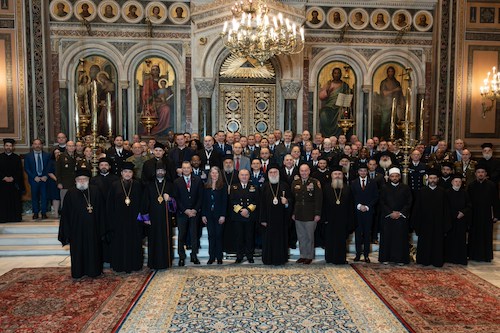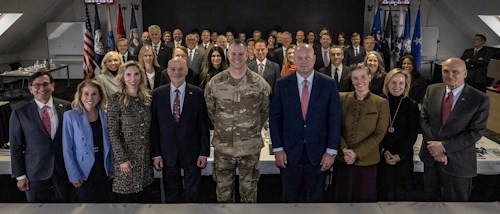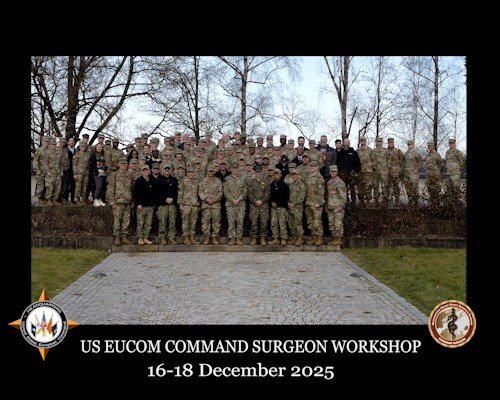Editor's Note: For the 2017 EUCOM Full Transcript, click Here
*****
GEN SCAPARROTTI: Thank you Chairman Thornberry and Ranking Member Smith, and distinguished members of the committee, I am honored to testify today as the commander of United States European Command. On behalf of over 60,000 permanently assigned service members as well as civilians, contractors, and their families who serve and represent our Nation in Europe, thank you for your support.
The European theater remains critical to our national interests. The transatlantic alliance gives us a unique advantage over our adversaries - a united, capable, warfighting alliance resolved in its purpose and strengthened by shared values that have been forged in battle. EUCOM’s relationship with NATO and the 51 countries within our AOR provides the United States with a network of willing partners who support global operations and secure the international rules-based order. Our security architecture protects more than one billion people and has safeguarded transatlantic trade which now constitutes almost half of the world’s GDP.
However, this security architecture is being tested, and today we face the most dynamic European strategic environment in recent history. Political volatility and economic uncertainty are compounded by threats to our security system that are trans-regional, multi-domain and multi-functional. In the East, a resurgent Russia has turned from partner to antagonist as it seeks to reemerge as a global power. Countries along Russia’s periphery, including Ukraine and Georgia, struggle against Moscow’s malign activities and military actions. In the Southeast, strategic drivers of instability converge on key allies, especially Turkey, which has to simultaneously manage Russia, terrorists, and refugee flows. In the South, violent extremists and transnational criminal elements spawn terror and corruption from North Africa to the Middle East while refugees flee to Europe in search of security and opportunity. And in the “High North,” Russia is reasserting its military presence and positioning itself for strategic advantage in the Arctic.
In response to these challenges, EUCOM has shifted its focus from security cooperation and engagement to deterrence and defense. Accordingly, we are adjusting our posture, plans, and readiness so that we remain relevant to the threats we face. In short, we are returning to our historic role as a warfighting command focused on deterrence and defense.
EUCOM’s transition would not be possible without Congressional support of the European Reassurance Initiative (ERI). Thanks in large measure to ERI, over the last 12 months EUCOM has made clear progress with an enhanced force presence, complex exercises and training, infrastructure improvements, increased prepositioning of equipment and supplies, and partner capacity building throughout Europe.
But we cannot meet these challenges alone. In response to Russian aggression, EUCOM has continued to strengthen our relationship with strategic allies and partners, including the Baltic nations, Poland, Turkey, and Ukraine. EUCOM has also strengthened ties with Israel, one of our closest allies. Above all, EUCOM has supported the NATO Alliance, which remains, as Secretary Mattis said, the “bedrock” of our transatlantic security.
Thus, the EUCOM posture is growing stronger, and I remain confident in our ability to effect this transition. But there is much work to do. We must not only match, but outpace the modernization and advances of our adversaries. We must invest in the tools and capabilities needed to increase effectiveness across the spectrum of conflict. And we must ensure that we have a force that is credible, agile, and relevant to the dynamic demands of this theater.
To this end, EUCOM has identified the following focus areas: ISR collection platforms to improve timely threat information and strategic warning; land force capabilities to deter Russia from further aggression; enhanced naval capabilities for anti-submarine warfare, strike warfare, and amphibious operations; prepositioned equipment to increase our responsiveness to crises; and enhanced missile defense systems.
Let me conclude by again thanking this Committee’s Members and staff for their continued support of EUCOM, not only through increased funding but also by helping us to articulate the challenges that lie before us. Support from other leaders and, above all, from the public at home and across Europe is vital to ensuring that we have a ready and relevant force. This remains a pivotal time for EUCOM as we transition to meet the demands of a dynamic security environment. I remain confident that through the strength of our Alliances and partnerships, and with the professionalism of our service members, we will adapt and ensure that Europe remains whole, free and at peace.
Thank you, and I look forward to your questions.




